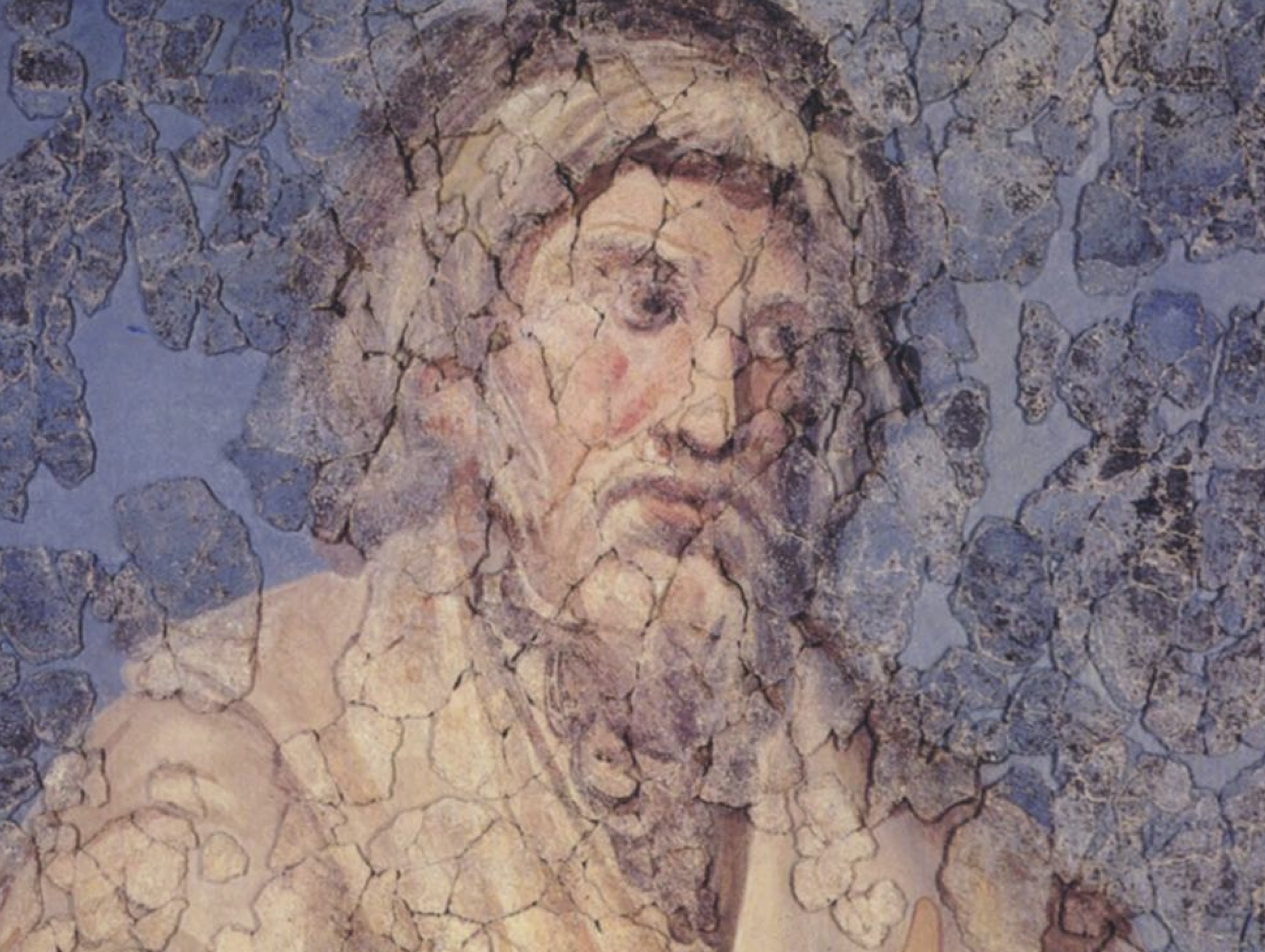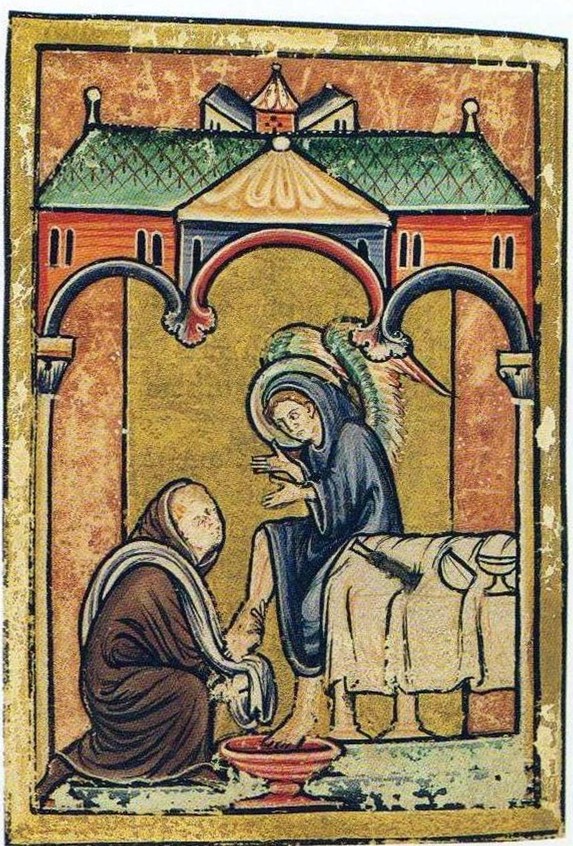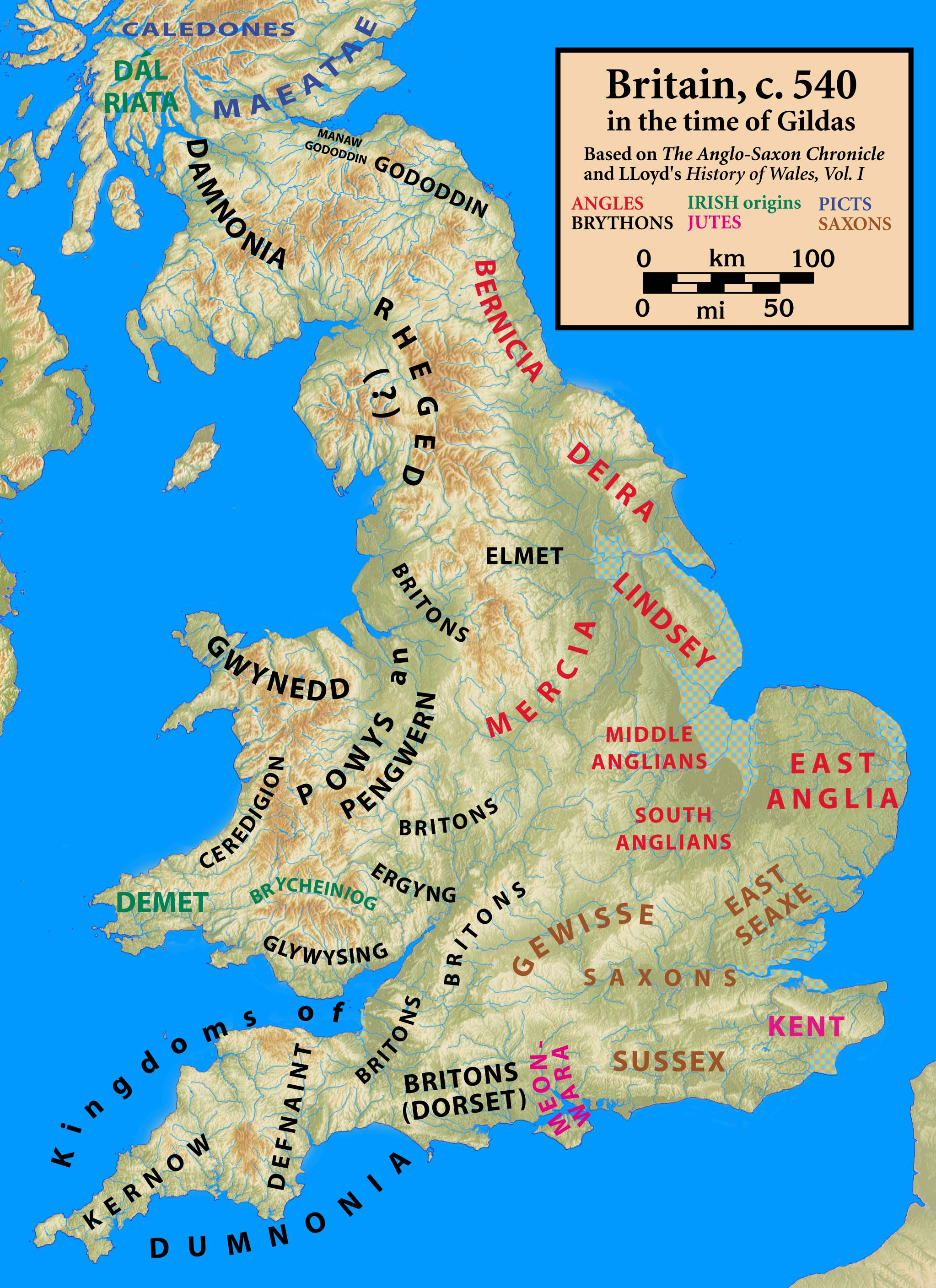|
Anglo-Latin
Anglo-Latin literature is literature from originally written in Latin and produced in England or other English-speaking parts of Britain and Ireland. It was written in Medieval Latin, which differs from the earlier Classical Latin and Late Latin. Authors and style Chroniclers such as Bede (672/3–735), with his , and Gildas (c. 500–570), with his ''De Excidio et Conquestu Britanniae'', were figures in the development of indigenous Latin literature, mostly ecclesiastical, in the centuries following the withdrawal of the Roman Empire around the year 410. The (–705) is the first piece of Northumbrian Latin writing and the earliest piece of English Latin hagiography. The ''Historia Brittonum'' composed in the 9th century is traditionally ascribed to Nennius. It is the earliest source which presents King Arthur as a historical figure, and is the source of several stories which were repeated and amplified by later authors. In the 10th century the hermeneutic style became dominan ... [...More Info...] [...Related Items...] OR: [Wikipedia] [Google] [Baidu] |
Hermeneutic Style
The hermeneutic style is a style of Latin in the later Roman and early Medieval periods characterised by the extensive use of unusual and arcane words, especially derived from Greek. The style is first found in the work of Apuleius in the second century, and then in several late Roman writers. In the early medieval period, some leading Continental scholars were exponents, including Johannes Scotus Eriugena and Odo of Cluny. In England, the seventh-century bishop Aldhelm was the most influential hermeneutic writer; Latin scholarship declined in the ninth century, and when it revived in the tenth, the hermeneutic style became increasingly influential. Unlike in continental Europe, where it was used only by a minority of writers, in tenth-century England it became nearly universal. It was the house style of the English Benedictine Reform, the most important intellectual movement in later Anglo-Saxon England. The style fell out of favour after the Norman Conquest, and the twelfth-ce ... [...More Info...] [...Related Items...] OR: [Wikipedia] [Google] [Baidu] |
Vita Sancti Cuthberti (anonymous)
The (English: "Life of Saint Cuthbert") is a prose hagiography from early medieval Northumbria. It is probably the earliest extant saint's life from Anglo-Saxon England and is an account of the life and miracles of Cuthbert (died 687), a Bernician hermit-monk who became bishop of Lindisfarne. Surviving in eight manuscripts from Continental Europe, it was not as well read in the Middle Ages as the prose version by Bede. It was however Bede's main source for his two dedicated works on Cuthbert, the "Metrical Life" and the "Prose Life". It was completed soon after the translation of Cuthbert's body in 698, at some point between 699 and 705. Compiled from oral sources available in Bernicia at the time of its composition, the ''Vita'' nonetheless utilized previous Christian writing from the Continent, particularly Gregory the Great's ''Dialogi'' and Sulpicius Severus' ''Vita Sancti Martini'', as powerful influences. The name of the author is not known, though he was a monk of the mona ... [...More Info...] [...Related Items...] OR: [Wikipedia] [Google] [Baidu] |
Wulfstan Of Winchester
Wulfstan the Cantor (c. 960 – early 11th century), also known as Wulfstan of Winchester, was an Anglo-Saxon monk of the Old Minster, Winchester. He was also a writer, musician, composer and scribe. Wulfstan is most famous for his hagiographic work ''Vita S. Aethelwoldi''. Life Very little is known about Wulfstan's life. The date of his birth is unknown, but personal references within his poem ''Narratio metrica de S. Swithuno'' suggest he was a child at the time of St. Swithun’s canonization in 971. These references have led scholars to believe that Wulfstan was born in about 960 and was given as a child to the Old Minster, where he spent his mature life. At the Old Minster, Wulfstan studied under Æthelwold of Winchester, about whom he wrote his ''Vita S. Aethelwoldi''. Wulfstan became a monk and a priest; he then rose to become a precentor, and hence is often referred to in contemporary sources as Wulfstan Cantor. As precentor, Wulfstan would have been responsibl ... [...More Info...] [...Related Items...] OR: [Wikipedia] [Google] [Baidu] |
Medieval Latin
Medieval Latin was the form of Literary Latin used in Roman Catholic Church, Roman Catholic Western Europe during the Middle Ages. It was also the administrative language in the former Western Roman Empire, Roman Provinces of Mauretania, Numidia (Roman province), Numidia and Africa (Roman province), Africa Proconsularis under the Vandals, the Exarchate of Africa, Byzantines and the Kingdom of Altava, Romano-Berber Kingdoms, until it declined after the Arab conquest of North Africa, Arab Conquest. Medieval Latin in Southern and Central Visigothic Kingdom, Visigothic Hispania, conquered by the Arabs immediately after North Africa, experienced a similar fate, only recovering its importance after the Reconquista by the Northern Christian Kingdoms. In this region it served as the primary written language, though local languages were also written to varying degrees. Latin functioned as the main medium of scholarly exchange, as the liturgical language of the Roman Catholic Church, Churc ... [...More Info...] [...Related Items...] OR: [Wikipedia] [Google] [Baidu] |
Frithegod
Frithegod, (flourished ''circa'' (''c.'') 950 to ''c.'' 958) was a poet and clergyman in the mid 10th-century who served Oda of Canterbury, an Archbishop of Canterbury. As a non-native of England, he came to Canterbury and entered Oda's service as a teacher and scholar. After Oda's death he likely returned to the continent. His most influential writing was a poem on the life of Wilfrid, an 8th-century bishop and saint, named ''Breviloquium Vitae Wilfridi''. Several manuscripts of this poem survive, as well as a few other of Frithegod's poems. He was also known for the complexity of his writings, with one historian even calling them "damnably difficult". Life Frithegod was probably a native of France, as his name is obviously not Anglo-Saxon, and was probably an attempt to Anglicize the Frankish name Fredegaud. He may have originated near La Chaise-Dieu in Aquitaine, as he seems to have returned there late in his life, but this is just a theory with no solid proof.Beech "England a ... [...More Info...] [...Related Items...] OR: [Wikipedia] [Google] [Baidu] |
Bede
Bede (; ; 672/326 May 735), also known as Saint Bede, Bede of Jarrow, the Venerable Bede, and Bede the Venerable (), was an English monk, author and scholar. He was one of the most known writers during the Early Middle Ages, and his most famous work, '' Ecclesiastical History of the English People'', gained him the title "The Father of English History". He served at the monastery of St Peter and its companion monastery of St Paul in the Kingdom of Northumbria of the Angles. Born on lands belonging to the twin monastery of Monkwearmouth–Jarrow in present-day Tyne and Wear, England, Bede was sent to Monkwearmouth at the age of seven and later joined Abbot Ceolfrith at Jarrow. Both of them survived a plague that struck in 686 and killed the majority of the population there. While Bede spent most of his life in the monastery, he travelled to several abbeys and monasteries across the British Isles, even visiting the archbishop of York and King Ceolwulf of Northumbria. ... [...More Info...] [...Related Items...] OR: [Wikipedia] [Google] [Baidu] |
Alcuin
Alcuin of York (; ; 735 – 19 May 804), also called Ealhwine, Alhwin, or Alchoin, was a scholar, clergyman, poet, and teacher from York, Northumbria. He was born around 735 and became the student of Ecgbert of York, Archbishop Ecgbert at York. At the invitation of Charlemagne, he became a leading scholar and teacher at the Carolingian dynasty, Carolingian court, where he remained a figure in the 780s and 790s. Before that, he was also a court chancellor in Aachen. "The most learned man anywhere to be found", according to Einhard's ''Vita Karoli Magni, Life of Charlemagne'' (–833), he is considered among the most important intellectual architects of the Carolingian Renaissance. Among his pupils were many of the dominant intellectuals of the Carolingian era. Alcuin wrote many theological and dogmatic treatises, as well as a few grammatical works and a number of poems. In 796, he was made abbot of Marmoutier Abbey, Tours, Marmoutier Abbey, in Tours, where he worked on perfecti ... [...More Info...] [...Related Items...] OR: [Wikipedia] [Google] [Baidu] |
De Excidio Et Conquestu Britanniae
(English: ''On the Ruin and Conquest of Britain'') is a work written in Anglo-Latin literature, Latin in the late fifth or sixth century by the Britons (historical), British religious polemicist Gildas. It is a sermon in three parts condemning the acts of Gildas' contemporaries, both secular and religious, whom he blames for the dire state of affairs in sub-Roman Britain. It is one of the most important sources for the history of Britain in the fifth and sixth centuries, as it is the only significant historical source for the period written by a near contemporary of the people and events described. Part I contains a narrative of British history from the Roman conquest of Britain, Roman conquest to Gildas' time; it includes references to Ambrosius Aurelianus and the Britons' victory against the Saxons at the Battle of Mons Badonicus. Part II is a condemnation of five kings for their various sins, including both obscure figures and relatively well-documented ones such as Maelgwn ... [...More Info...] [...Related Items...] OR: [Wikipedia] [Google] [Baidu] |
Literature
Literature is any collection of Writing, written work, but it is also used more narrowly for writings specifically considered to be an art form, especially novels, Play (theatre), plays, and poetry, poems. It includes both print and Electronic literature, digital writing. In recent centuries, the definition has expanded to include oral literature, much of which has been transcribed.; see also Homer. Literature is a method of recording, preserving, and transmitting knowledge and entertainment. It can also have a social, psychological, spiritual, or political role. Literary criticism is one of the oldest academic disciplines, and is concerned with the literary merit or intellectual significance of specific texts. The study of books and other texts as artifacts or traditions is instead encompassed by textual criticism or the history of the book. "Literature", as an art form, is sometimes used synonymously with literary fiction, fiction written with the goal of artistic merit, but ... [...More Info...] [...Related Items...] OR: [Wikipedia] [Google] [Baidu] |
Stephen Of Ripon
Stephen of Ripon was the author of the eighth-century Hagiography, hagiographic text ''Vita Sancti Wilfrithi'' ("Life of Wilfrid, Saint Wilfrid"). Other names once traditionally attributed to him are Eddius Stephanus or Æddi Stephanus, but these names are no longer preferred or accepted by historians today; modern usage tends to favour "Stephen". Life Very little is known about the life of Stephen of Ripon. The author of "The life of Saint Wilfrid" identifies himself as "Stephen, a priest". Bede mentions that Wilfrid brought a singing master from Kent, ''Ædde Stephanus'', to Ripon in 669 to teach chant, and traditionally he is thought to be the same person as the "Stephen" mentioned in the text. The written evidence suggest there are two candidates for the same person. If the two were the same, Stephen would have been at least twenty years old when he came north, placing him in his sixties or older at Wilfrid's death in 709. He was then recorded as being present at the annivers ... [...More Info...] [...Related Items...] OR: [Wikipedia] [Google] [Baidu] |
William Of Malmesbury
William of Malmesbury (; ) was the foremost English historian of the 12th century. He has been ranked among the most talented English historians since Bede. Modern historian C. Warren Hollister described him as "a gifted historical scholar and an omnivorous reader, impressively well versed in the literature of Classical antiquity, classical, patristic, and earlier medieval times as well as in the writings of his own contemporaries. Indeed William may well have been the most learned man in twelfth-century Western Europe." William was born about 1095 or 1096 in Wiltshire, England. His father was Normans, Norman and his mother English. He spent his whole life in England and his adult life as a monk at Malmesbury Abbey in Wiltshire. Biography Though the education William received at Malmesbury Abbey included a smattering of logic and physics, moral philosophy and history were the subjects to which he devoted the most attention. The earliest fact which he records of his career is tha ... [...More Info...] [...Related Items...] OR: [Wikipedia] [Google] [Baidu] |
Aldhelm
Aldhelm (, ; 25 May 709), Abbot of Malmesbury Abbey, Bishop of Sherborne, and a writer and scholar of Latin poetry, was born before the middle of the 7th century. He is said to have been the son of Kenten, who was of the royal house of Wessex.Walsh ''A New Dictionary of Saints'' pp. 21–22 He was certainly not, as his early biographer Faritius asserts, the brother of King Ine. After his death he was venerated as a saint, his feast day being the day of his death, 25 May. Life Early life and education Aldhelm received his first education in the school of the Irish scholar and monk Máeldub (also ''Maildubh'', ''Maildulf'' or ''Meldun'') (died ), who had settled in the British stronghold of Bladon (or ''Bladow'') on the site of the town called Mailduberi, Maldubesburg, Meldunesburg, etc., and finally Malmesbury, after him. In 668, Pope Vitalian sent Theodore of Tarsus to be Archbishop of Canterbury. At the same time the North African scholar Hadrian became abbot of St A ... [...More Info...] [...Related Items...] OR: [Wikipedia] [Google] [Baidu] |






